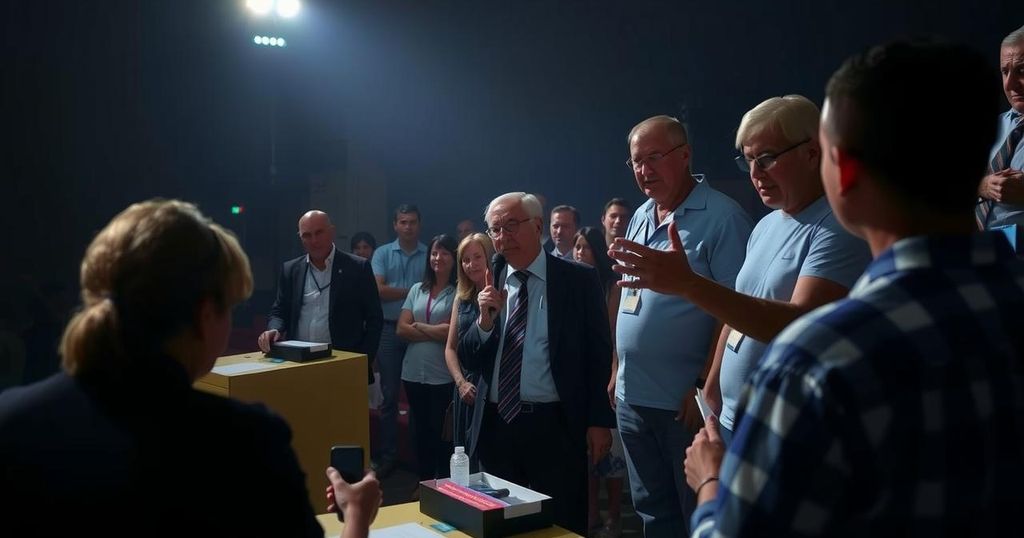Uruguay Prepares for Critical Presidential Runoff Election
Uruguay is poised for a closely contested presidential runoff featuring opposition leader Yamandu Orsi versus conservative candidate Alvaro Delgado. The election is crucial as voter turnout will play a decisive role, and both candidates are vying for undecided voters. With no contender commanding a clear majority, the outcome remains uncertain, reflecting broader global trends of incumbent change amid economic challenges.
In a close contest, Uruguay is set to hold a second-round presidential election on Sunday, marking the conclusion of a remarkable year for electoral events in the region. The candidates, Yamandu Orsi of the opposition Broad Front, who garnered 43.9% of the initial vote, and Alvaro Delgado, representing the conservative alliance, which includes the National Party and the Colorado Party, will vie for the presidency in a race forecasted to be extremely tight. Observers suggest that fewer than 25,000 votes may distinguish the two contenders in the runoff.
Uruguay, home to 3.4 million residents, is known for its political stability and moderate electoral climate, contrasting sharply with the polarization experienced in neighboring countries like Argentina and Brazil. Voter turnout is crucial as both candidates attempt to attract the remaining 8% of ballots cast for smaller parties in the first round. Ballot stations will be operational from 8 a.m. to 7:30 p.m. local time, with initial results anticipated shortly after polls close.
As both candidates formulate their strategies, Mr. Orsi aims to maintain continuity while promoting a contemporary leftist platform, while Mr. Delgado seeks to reinforce the message of re-electing effective governance inspired by President Lacalle Pou’s incumbent administration. Nevertheless, neither coalition commands an absolute majority within the lower house, emphasizing the significance of this election in shaping future governance. Analysts remain skeptical about the effectiveness of recent televised debates in swaying undecided voters, highlighting the overarching economic concerns that might influence voter preferences.
In conclusion, as Uruguay prepares for this decisive electoral moment, the candidates’ differing visions of governance, coupled with a stable economic backdrop, present an intriguing narrative that could potentially defy the trend of declining incumbent support observed globally.
Uruguay’s current political landscape reflects a backdrop of relative stability amidst a region characterized by significant electoral shifts. Following a successful year in terms of democracy and voter engagement, the country faces a runoff election between two moderate candidates positioned within conservative and liberal coalitions, which traditionally overlap. The political atmosphere in Uruguay differs notably from that of its neighbors; recent trends across the globe indicate incumbent parties facing increasing challenges, particularly due to economic discontent among voters struck by inflation and rising costs.
The second-round presidential election in Uruguay presents an opportunity for voters to engage with candidates who represent continuity and moderate change. The tiny electoral margin drives interest and highlights the importance of voter turnout. As both candidates remain in contention for the critical remaining votes, the outcomes of their strategies could set the tone for Uruguay’s governance in the future, amidst broader trends observed in political dynamics worldwide.
Original Source: www.ndtv.com




Post Comment